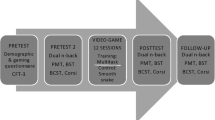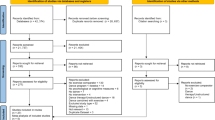Abstract
Engaging in cognitively stimulating activities such as playing video games consistently over a sustained period of time may confer cognitive benefits. However, it is not currently understood if playing video games regularly over the lifespan may promote resiliency to cognitive decline in neurodegenerative disorders, such as Multiple Sclerosis (MS). In the present study, we investigated the association between the history of playing video games and neuropsychological performance in people with MS (PwMS). A total of 42 PwMS completed neuropsychological tests primarily from the Minimal Assessment of Cognitive Functioning in MS (MACFIMS) battery. Study participants also estimated how many hours of video games they played per week over their adult life. Linear regression analyses indicated that greater estimated hours playing video games was significantly associated with better performance on an index of global cognitive performance, the Delis-Kaplan Executive Functioning System Card Sorting test score, and the learning trials of the California Verbal Learning Test (second edition) and the Brief Visuospatial Memory Test (Revised). These relationships were significant while controlling for age, disease duration, and estimated premorbid IQ. Secondary analyses revealed that video game playing was also a better predictor of visuospatial learning, short-term memory, and executive functioning performance than other variables that have also previously been associated with the accumulation of cognitive reserve. The findings suggest that playing video games consistently through adulthood is associated with better cognitive outcomes in PwMS, particularly in the domains of new learning and executive functioning.

Similar content being viewed by others
Data Availability
The data reported in this manuscript will be provided to other researchers upon request.
References
Bavelier, D., & Green, C. S. (2019). Enhancing attentional control: Lessons from action video games. Neuron, 104, 147–163.
Bediou, B., Adams, D. M., Mayer, R., Tipton, E., Green, C. S., & Bavelier, D. (2018). Meta-analysis of action video game impact on perceptual, attentional, and cognitive skills. Psychological Bulletin, 144(1), 77–110.
Benedict, R. H. B., Cookfair, D., Gavett, R., Gunther, M., Munschauer, F., Garg, N., & Weinstock-Guttman, B. (2006). Validity of the minimal assessment of cognitive function in multiple sclerosis (MACFIMS). Journal of the International Neuropsychological Society, 12, 549–558.
Benedict, R., Morrow, S., Weinstock-Guttman, B., Cookfair, D., & Schretlen, D. (2010). Cognitive reserve moderates decline in information processing speed in multiple sclerosis patients. Journal of the International Neuropsychological Society, 16(5), 829–835.
Benedict, R. H. B., Pia Amato, M., DeLuca, J., & Geurts, J. G. (2020). Cognitive impairment in multiple sclerosis: Clinical management, MRI, and therapeutic avenues. The Lancet Neurology, 19(10), 860–871.
Brichetto, G., Spallarossa, P., Lopes de Carvalho, M. L., & Battaglia, M. A. (2013). The effect of Nintendo Wii on balance in people with multiple sclerosis: A pilot randomized control study. Multiple Sclerosis Journal, 19(9), 1219–1221.
Covey, T. J., Shucard, J. L., Benedict, R. H. B., Weinstock-Guttman, B., & Shucard, D. W. (2018). Improved cognitive performance and event-related potential changes following working memory training in patients with multiple sclerosis. Multiple Sclerosis Journal – Experimental Translational and Clinical,4(1).
Dale, G., Kattner, F., Bavelier, D., & Green, C. S. (2020). Cognitive abilities of action video game and role-playing video game players: Data from a massive open online course. Psychology of Popular Media, 9(3), 347–358.
Dalmazane, M., Gallou-Guyot, M., Compagnat, M., Magy, L., Montcuquet, A., Billot, M., & Perrochon (2021). Effects on gain and balance of home-based active video game interventions in persons with multiple sclerosis: A systematic review. Multiple Sclerosis and Related Disorders, 51, Article102928.
das Nair, R., Martin, K. J., & Lincoln, N. (2016). Memory rehabilitation for people with multiple sclerosis. Cochrane Database Systemic Reviews, 3, CD0087.
Diarra, M., Zendel, B. R., Benady-Chorney, J., Blanchette, C-A., Lepore, F., Peretz, I., Belleville, S., & West, G. L. (2019). Playing Super Mario increases oculomotor inhibition and frontal eye field grey matter in older adults. Experimental Brain Research, 237, 723–733.
Forsberg, A., Nilsagård, Y., & Boström, K. (2015). Perceptions of using videogames in rehabilitation: A dual perspective of people with multiple sclerosis and physiotherapists. Disability and Rehabilitation, 37(4), 338–344.
Fuchs, T. A., Ziccardi, S., Benedict, R. H. B., Barnik, A., Kuceyeski, A., Charvet, L. E., & Dwyer (2019). Functional connectivity and structural disruption in the default-mode network predicts cognitive rehabilitation outcomes in multiple sclerosis. Journal of Neuroimaging, 30, 523–530.
Fuchs, T. A., Ziccardi, S., Dwyer, M. G., Charvet, L. E., Bartnik, A., & Campbell, R.… Benedict (2019). Response heterogeneity to home-based restorative cognitive rehabilitation in multiple sclerosis: An exploratory study. Multiple Sclerosis and Related Disorders, 34, 103–111.
Gleich, T., Lorenz, R. C., Gallinat, J., & Kühn., S. (2017). Functional changes in the reward circuit in response to gaming-related cues after training with a commercial video game. Neuroimage, 152, 467–475.
Granic, I., Lobel, A., & Engels, R. C. M. E. (2014). The benefits of playing video games. American Psychologist, 69(1), 66–78.
Grazio Maggio, M., Russo, M., Foti Cuzzola, M., Destro, M., La Rosa, G., Molonia, F., & Salvatore Calabrò. (2019). Virtual reality in multiple sclerosis rehabilitation: A review on cognitive and motor outcomes. Journal of Clinical Neuroscience, 65, 106–111.
Hancock, L. M., Bruce, J. M., Buce, A. S., & Lynch, S. G. (2015). Processing speed and working memory training in multiple sclerosis: A double-blind randomized controlled pilot study. Journal of Clinical and Experimental Neuropsychology, 37(2), 113–127.
Hubacher, D. L., Weber, J., P, et al. (2015). Cognitive rehabilitation of working memory in juvenile multiple sclerosis – effects on cognitive functioning, functional MRI and network related connectivity. Restorative Neurology and Neuroscience, 33(5), 713–725.
Hubacher, M., Kappos, L., Weier, K., Stöklin, M., Opwis, K., & Penner, I-K. (2015). Case-based fMRI analysis after cognitive rehabilitation in MS: A novel approach. Frontiers in Neurology, 6(1).
Kim, J., Lee, M., & Yim, J. (2019). A new approach to transcranial direct current stimulation in improving cognitive motor learning and hand function with the Nintendo switch in stroke survivors. Medical Science Monitor, 25, 9555–9562.
Kühn, S., Gleich, T., Lorenz, R. C., Lindenberger, U., & Gallinat, J. (2014). Playing Super Mario induces structural brain plasticity: Gray matter changes resulting from training with a commercial video game. Molecular Psychiatry, 19, 265–271.
Marinho Pessoa, T., Sousa Coutinho, D., Martinho Pereira, V., Pinho de Oliveira Ribero, N., & Egidio Nardi, A. (2014). The Nintendo Wii as a tool for neurocognitive rehabilitation, training and health promotion. Computers in Human Behavior, 31, 384–392. & Cardoso de Oliveira e Silva.
Marker, C., Gnambs, T., & Appel, M. (2022). Exploring the myth of the chubby gamer: A meta-analysis on sedentary video gaming and body mass (Vol. 301). Social Science & Medicine. Article 112325.
Mitolo, M., Venneri, A., Wilkenson, I. D., & Sharrack, B. (2015). Cognitive rehabilitation in multiple sclerosis: A systematic review. Journal of the Neurological Sciences, 354, 1–9.
Morrow, S. A., O’Connor, P. W., Polman, C. H., Goodman, A. D., Kappos, L., Lublin, F. D., & Benedict (2010). Evaluation of the symbol digit modalities test (SDMT) and MS neuropsychological screening questionnaire (MSNQ) in natalizumab-treated MS patients over 48 weeks. Multiple Sclerosis, 16(11), 1385–1392.
Mura, G., Carta, M. G., Sancassiani, F., Machado, S., & Prosperini, L. (2018). Active exergames to improve cognitive functioning in neurological disabilities: A systematic review and meta-analysis. European Journal of Physical and Rehabilitation Medicine, 54, 450–462.
Parra-Moreno, M., Rodriguez-Juan, J. J., & Ruiz-Cárdenas, J. D. (2021). Use of commercial video games to improve postural balance in patients with multiple sclerosis: A systematic review and meta-analysis of randomized controlled clinical trials. Neurología, 36, 618–624.
Raven, J. C. (1990). Advanced Progressive matrices: Sets I, II. Oxford Univ.
Sandroff, B. M., & DeLuca, J. (2020). Will behavioral treatments for cognitive impairment in multiple sclerosis become standards-of-care? International Journal of Psychophysiology, 154, 67–79.
Stern, Y. (2003). The concept of cognitive reserve: A catalyst for research. Journal of Clinical and Experimental Neuropsychology, 25(5), 589–593.
Stern, Y. (2009). Cognitive reserve. Neuropsychologia, 47(10), 2015–2028.
Sumowski, J. F., & Leavitt, V. M. (2013). Cognitive reserve in multiple sclerosis. Multiple Sclerosis Journal, 19(9), 1122–1127.
Sumowski, J. F., Chiaravalloti, N., & DeLuca, J. (2009). Cognitive reserve protects against cognitive dysfunction in multiple sclerosis. Journal of Clinical and Experimental Neuropsychology, 31(8), 913–926.
Sumowski, J. F., Wyllie, G. R., Gonnella, A., Chiaravalloti, N., & DeLuca, J. (2010). Premorbid cognitive leisure independently contributes to cognitive reserve in multiple sclerosis. Neurology, 75, 1428–1431.
Taylor, M. J. D., & Griffin, M. (2015). The use of gaming technology for rehabilitation in people with multiple sclerosis. Multiple Sclerosis Journal, 21(4), 355–371.
Vogt, A., Kappos, L., Calabrese, P., Stöcklin, M., Gschwind, L., Opwis, K., & Penner, I-K. (2009). Working memory training in patients with multiple sclerosis – comparison of two different training schedules. Restorative Neurology and Neuroscience, 27, 225–235.
West, G. L., Rich Zendel, B., Konishi, K., Benedy-Chorney, J., Bohbot, V. D., Peretz, I., & Belleville, S. (2017). Playing Super Mario 64 increases hippocampal grey matter in older adults. Plos One, 12(2), e0187779.
Funding
The research was funded by the National Multiple Sclerosis Society (grant #RG-1607-25467).
Author information
Authors and Affiliations
Contributions
Thomas Covey: Study conceptualization, methodology, formal analysis, study resources, data curation, writing of original draft, review and editing, visualization of study data, study supervision, project administration, and funding acquisition; Janet Shucard: Study conceptualization, methodology, formal analysis, study resources, data curation, writing of original draft, review and editing, study supervision, project administration, and funding acquisition; Elizabeth Bukoskey: methodology, formal analysis, data curation, review and editing; David Shucard: Study conceptualization, methodology, formal analysis, study resources, data curation, writing of original draft, review and editing, study supervision, project administration, and funding acquisition.
Corresponding author
Ethics declarations
Ethical Approval
All study procedures were approved by the University at Buffalo Institutional Review Board and in accordance with the standards of the 1964 Declaration of Helsinki. All human subjects provided informed consent prior to participating in the study.
Competing of Interests
No competing interests to report.
Financial and non-financial Interests
The authors have no other relevant financial or non-financial interests to disclose.
Additional information
Publisher’s Note
Springer Nature remains neutral with regard to jurisdictional claims in published maps and institutional affiliations.
Electronic Supplementary Material
Below is the link to the electronic supplementary material.
Rights and permissions
Springer Nature or its licensor (e.g. a society or other partner) holds exclusive rights to this article under a publishing agreement with the author(s) or other rightsholder(s); author self-archiving of the accepted manuscript version of this article is solely governed by the terms of such publishing agreement and applicable law.
About this article
Cite this article
Covey, T.J., Shucard, J.L., Bukoskey, E. et al. History of Playing Video Games is Associated with Better Neuropsychological Performance in People with Multiple Sclerosis. J Cogn Enhanc 8, 107–117 (2024). https://doi.org/10.1007/s41465-024-00291-4
Received:
Accepted:
Published:
Issue Date:
DOI: https://doi.org/10.1007/s41465-024-00291-4




